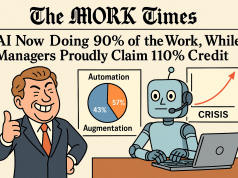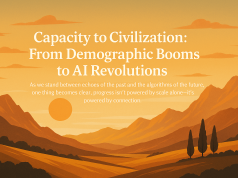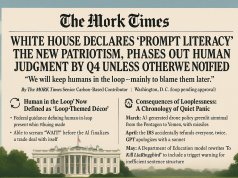In the bustling streets of New York and the virtual corridors of global communication, a profound transformation is reshaping the contours of the professional world. Globalization – once a buzzword – is now an indisputable reality, a force so pervasive that its ripples are felt in every corner office, co-working space, and digital workspace. The phenomenon has ushered in the ‘gig economy,’ opened doors to remote work, and paved the way for unprecedented international collaboration. But as the globe draws seemingly smaller, professionals in New York and beyond face the daunting question: What does this mean for our careers?
The impact of globalization on careers is multifaceted, presenting a spectrum of opportunities and challenges that defy the borders of traditional employment. Finance experts who were once confined to Wall Street can now influence markets across continents before their first coffee break. Tech professionals collaborate with cross-continental teams to create software that can bridge the gaps between diverse populations. And creatives find new muses and audiences in far-off cultures, their work enriched and disseminated through digital platforms.
While the global stage is set for a diverse range of career paths, it’s not without its trials. Globalization demands adaptability, a constant learning curve to meet the evolving market demands. New York’s professionals must now possess a global mindset, one that values cultural intelligence just as much as technical expertise. This capacity to navigate a diverse work environment becomes crucial as businesses, and the individuals within them, strive to remain relevant in a competitive international market.
For those looking to ride the crest of the globalization wave, lifelong learning is the surfboard of choice. Upskilling – the process of acquiring new and relevant competencies – is vital, and businesses can play a pivotal role in providing access to training and development opportunities. They must foster environments where learning new languages, understanding new technologies, and embracing cultural differences are not just encouraged but expected.
As finance professionals analyze global markets, they must understand not just numbers, but nuances – geopolitical, social, and economic shifts that could sway investments. In technology, the rapid pace of innovation coupled with the global reach of products means that professionals must be both specialists and agile generalists who can work with, or manage, diverse teams. And in the creative industries, where inspiration knows no boundaries, professionals are finding that their work resonates on a more profound level when they engage with international narratives and perspectives.
The new career paradigm shaped by globalization is one of continuous growth and redefinition. New York’s professionals, much like the city itself, are learning to be both local and global citizens, with skills and insights that transcend their immediate environment. As The Work Times, we not only chronicle these changes but also serve as a compass for those navigating these shifting tides.
To thrive in this new reality, individuals must become architects of their own careers, constructing foundations that are as responsive to change as they are robust in core competencies. The businesses that succeed will be those that not only adapt to globalization but actively embrace and drive the transformation. In the ebb and flow of globalization’s tides, the new career paradigm demands both the boldness to sail uncharted waters and the wisdom to chart a course through them.




























